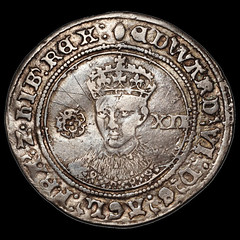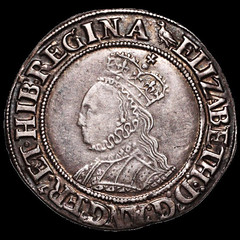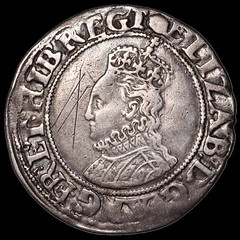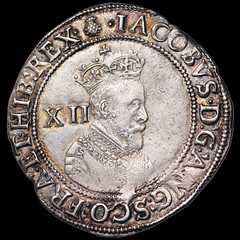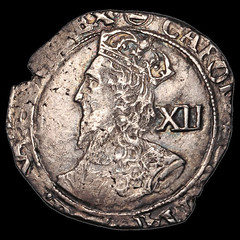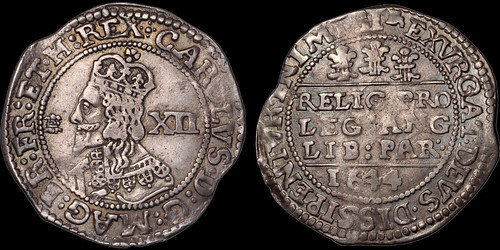
PREV ARTICLE
NEXT ARTICLE
FULL ISSUE
PREV FULL ISSUE
DAVISSONS E-AUCTION 47 SHILLINGSDavissons is holding their E-Auction 47 on September 6th. An email to clients from Allan Davisson highlighted several choice British hammered shillings. -Editor
Shillings
In the nearly five centuries this denomination has existed, it has not only become a fixture in much modern coinage (e.g. the United States quarter which is now issued in more iterations than I was willing to take time to count), its extensive use throughout all those years provides a comprehensive medallic account of British history. It is also a particularly popular area for collector specialization. I put together a few examples to serve as a focal point in this sale.
The denomination as a unit of measure had been around since Anglo-Saxon days, but an actual coin did not come about until the 14-year-old king's portrait appeared on the fine silver coinage of 1551 (Lot 169) that replaced the seriously debased—and disrespected—coinage left over from his spendthrift father. The precocious and erudite young Edward's writings* note his May 1551 criticism of London leaders raising prices because
In July 1551 Edward commented on
Later in the month he noted that it was *(Quotations taken from Jordan, W.K. Editor. The Chronicle and Political Papers of King Edward VI. Cornell University Press. 1966) We have a few more historically significant shillings in this sale including a couple with exceptional pedigrees. Elizabeth I is represented twice, with a Second Issue piece with an earlier portrait. (Lot 171) I have had this piece since well before our current database was constructed. It is on a full round flan with good detail and almost all the edge beading intact. (In hand it is more attractive with a richer tone and clear hints of underlying fresh surfaces.)
Another piece issued later in her reign has clear scratches in the field just in front of her portrait. (Lot 175) There is a possibility that this bold The James I shilling with the rare first portrait of James (Lot 177) came from one of the finest coin collections of the 20th Century, the collection formed by Mrs. Emery May Norweb from about 1905. She had inherited a collection of American coins and she, along with her husband, R. Henry Norweb, collected for well over seven decades. The reign of Charles I was particularly well documented by the coinage that emerged during this tumultuous period. Lot 179 is an excellent example of a coin minted in a time of great stress. The bust was designed by a master—Briot—but the production was hurried, no time for a neatly cut flan. This was among the last pieces produced by the Tower for Charles. The next set of initial marks (mint marks) signified that Parliament was now using the coinage capabilities to produce coins under their rule.
The final shilling (Lot 182) in this brief feature come from the Bridgewater House collection formed in the 18th Century. A different portrait of Charles is on the obverse but the reverse has the declaration of the Royalists, RELIG PRO LEG ANG LIB PAR ( All in all, a few important anecdotes in English history.
For more information, or to bid, see:
To read the earlier E-Sylum article, see:
THE BOOK BAZARREWayne Homren, Editor The Numismatic Bibliomania Society is a non-profit organization promoting numismatic literature. See our web site at coinbooks.org. To submit items for publication in The E-Sylum, write to the Editor at this address: whomren@gmail.com To subscribe go to: https://my.binhost.com/lists/listinfo/esylum All Rights Reserved. NBS Home Page Contact the NBS webmaster 
|
